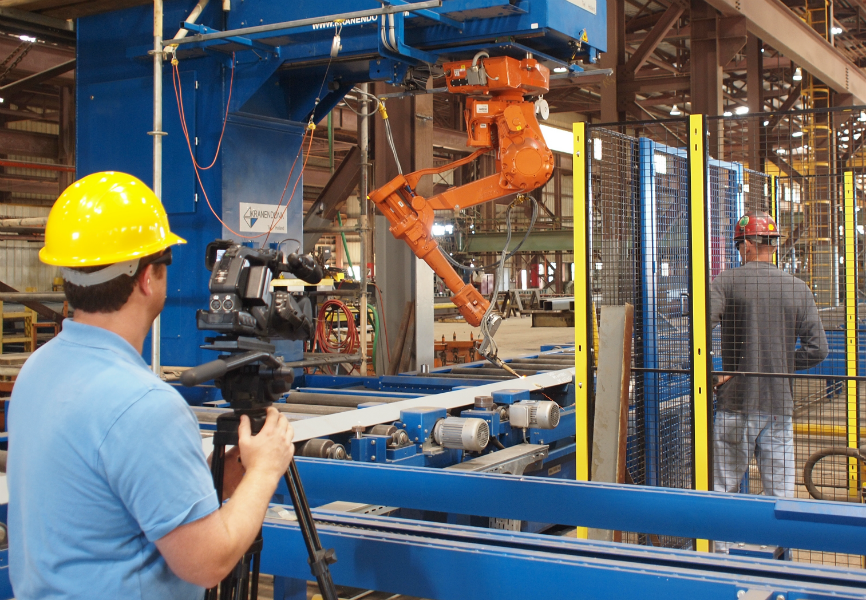President Donald Trump's decision to levy aggressive tariffs on steel and aluminum imports has placed his America First economic ideals squarely at the forefront of the political agenda. Last year's decision to withdraw from the Trans-Pacific Partnership trade pact hinted at the maverick president's resolve to follow through on some of his populist campaign promises. But the new tariffs—instituted at the end of a lengthy bureaucratic process—clearly signaled a determination to tilt the playing field in the US's favor, even at the risk of sparking a damaging global trade war.
Here are some developments to watch for in the coming months:
Tariff exemptions. The 25% tariff on steel imports and 10% tariff on aluminum are due to go into effect on 23 March, but their final shape might not be known until sometime afterward as dozens of countries and industries lobby for exemptions to the original blanket measure. Close trading partners and allies Canada, Mexico, and Australia have won reprieves. The EU and Asian countries are pressing for similar treatment. More exemptions would limit the potential for damaging countermeasures, but the White House will balance this consideration against ensuring the policy has teeth—China, with its glut of production capacity, is thought to be the main culprit of the low global prices that are undercutting US manufacturers.
China. The impact of the steel and aluminum tariffs pales in comparison to the potential fallout from a separate evaluation of Chinese intellectual property policies. This broad investigation could conclude that the damage done over a period of years to the US totals or even exceeds $1 trillion, justifying an expansive array of retaliatory measures for an equivalent amount. Measures are likely to be announced in the coming weeks. Though Trump has moderated his anti-Chinese rhetoric and seems to have a good relationship with President Xi Jinping, whose support he has courted to help deal with North Korea, the need to fight back against China was a recurring theme for Trump on the campaign trail. Watch this space.
NAFTA. Trump has also taken aim at longstanding trade agreements such as the North American Free Trade Agreement (NAFTA), forcing the renegotiation of a pact that has tightly bound the economies of the US, Canada, and Mexico. But progress on an overhaul has been slow amid Trump's threats of a unilateral withdrawal and the imposition of steel and aluminum tariffs. The concern is that if a new deal is not struck before Mexico's July presidential election, which leftist leader Andres Manuel Lopez Obrador is tipped to win, the talks to save NAFTA would become much more difficult after that.
Retaliation. The steel and aluminum tariffs brought swift promises of countermeasures from countries around the world. EU officials drew up a list of US products they could target that included peanut butter, Harley Davidson motorcycles, and Levi's jeans (to which Trump replied the US could slap duties on European cars). No countermeasures have yet been finalized as lobbying for exemptions to the tariffs continues. The danger is that successive rounds of retaliatory measures in the coming weeks and months could develop into a global trade war that affects many industries, puts a chill on business investment, and dampens consumer spending.
Domestic fallout. The US has generally been a champion of free trade and the framework of treaties and institutions that supports global commerce. So although a segment of the population strongly feels it has been hurt by trade and helped to put Trump in the White House, many business and political leaders (including in Trump's own party) have been harshly critical of the steel and aluminum tariffs. Republican Senator Jeff Flake this week introduced a bill to nullify them, though it is not expected to gain much traction. In recent decades the western end of Pennsylvania Avenue (Congress) has largely ceded its authority over trade to the eastern end (the White House), and it would be difficult to quickly reverse this dynamic. Still, this will be important to watch if economic fallout from the tariffs and retaliatory measures mounts in the months ahead of the November midterm elections.

 A Kranendonk robotic profile cutter works at the Signal International shipyard in Pascagoula, Mississippi in 2010. (PHOTO/PAT DAVID)
A Kranendonk robotic profile cutter works at the Signal International shipyard in Pascagoula, Mississippi in 2010. (PHOTO/PAT DAVID)